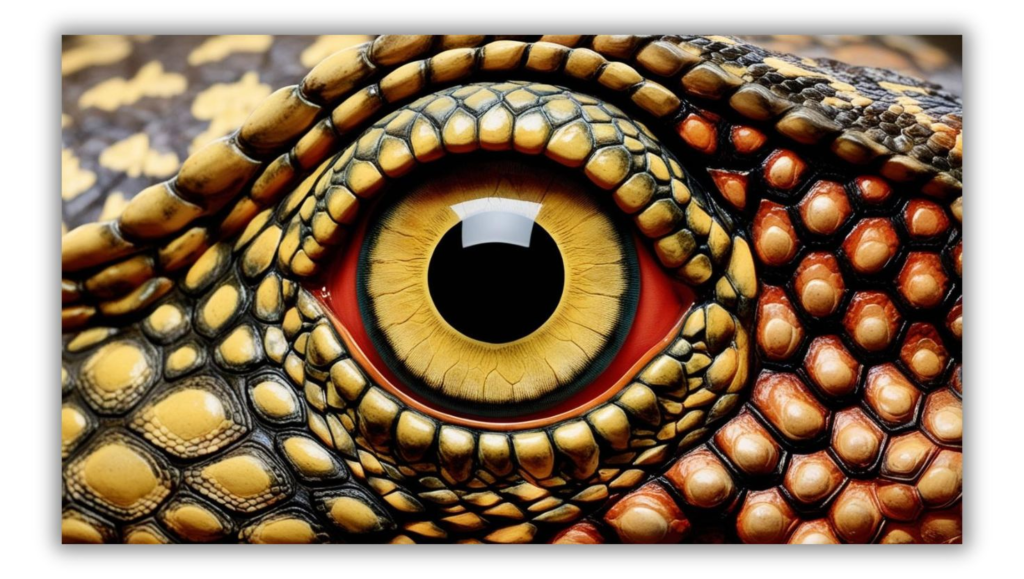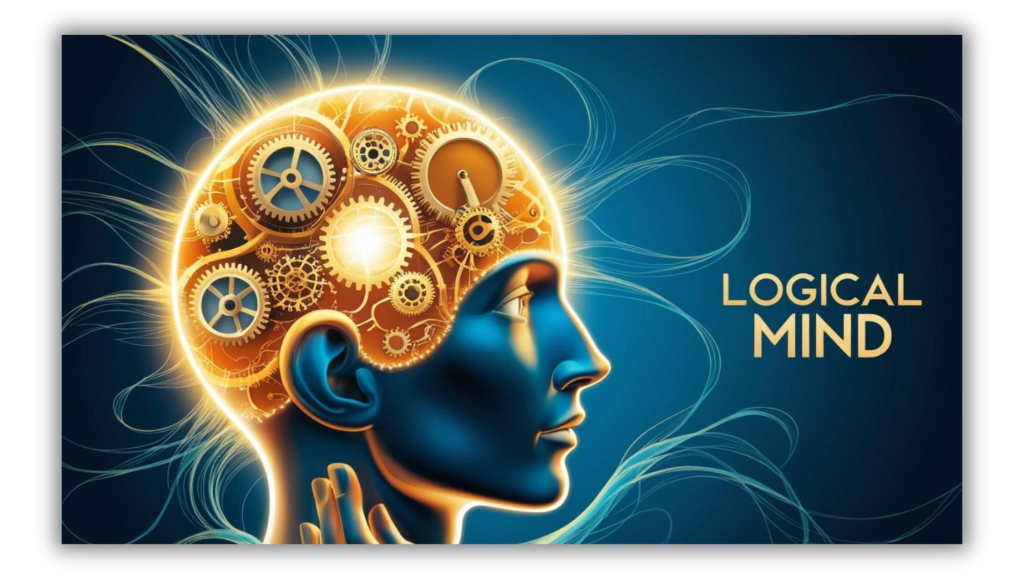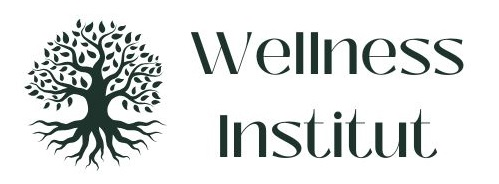The Power of the Three Minds
Understanding the Three Minds: Reptilian, Emotional, and Logical
Human behavior is guided by three fundamental aspects of our brain: the Reptilian Mind, the Emotional Mind, and the Logical Mind. Each of these minds develops at different stages of life and plays a crucial role in how we perceive and interact with the world.
1. The Reptilian Mind: The Foundation of Survival
The reptilian mind is the oldest and most primitive part of our brain, responsible for our basic survival instincts. It’s sometimes referred to as the “lizard brain” because it mirrors the brain structure of reptiles, which were primarily concerned with basic functions like survival and reproduction.
Key Functions:
Fight or Flight: This mind activates in response to perceived threats, triggering the fight-or-flight response. When we’re faced with danger, it ensures that we can either defend ourselves or escape quickly. This reaction is automatic and often happens without conscious thought.
Basic Survival Needs: The reptilian mind governs our instincts related to food, water, shelter, and safety. It helps us navigate situations that involve basic survival, ensuring we are focused on what’s necessary for staying alive.
Reactivity: This mind is highly reactive, often leading to impulsive behaviors when under stress. It doesn’t have the capacity to reason or reflect on consequences, focusing solely on immediate responses to external stimuli.
Development and Influence:
The reptilian mind begins its development in utero, and its influence continues throughout our lives. It’s the first mind to function and is responsible for keeping us alive by reacting to our environment, ensuring our basic needs are met. People who are overly driven by the reptilian mind may struggle with excessive fear, aggression, or dominance, as their survival instincts take precedence over more thoughtful, reflective responses.
While the reptilian mind is essential for survival, it often operates in the background, subtly influencing decisions, especially in high-stress or threatening situations.
How It Affects Us:
In stressful situations, we may resort to defensive behaviors or react with aggression if we feel threatened.
When overwhelmed by fear or stress, we may experience impulsive actions that are disconnected from our rational thoughts.
It drives our need for territory and control, which can sometimes lead to unhealthy behaviors like domination or withdrawal.

2. The Emotional Mind: The Heart of Connection and Empathy
The emotional mind is the part of our brain that governs our feelings, empathy, and emotional responses. It emerges around the age of 4 and becomes more refined as we grow, shaping how we connect with others and manage our inner world.
Key Functions:
Emotions and Feelings: The emotional mind processes and expresses our emotions—joy, sadness, anger, fear, love, and others. It is essential for emotional intelligence, allowing us to identify and understand not only our own feelings but also the feelings of others.
Empathy and Compassion: This mind plays a central role in empathy—the ability to understand and share the feelings of another. It allows us to form social bonds, connect on a deep emotional level, and experience compassion in our relationships.
Emotional Regulation: The emotional mind helps us manage and regulate our emotional responses. It allows us to soothe ourselves when angry or anxious and guides us in creating emotionally healthy relationships.
Development and Influence:
The emotional mind begins to take shape around the age of 4. It is during this stage that children start to develop attachment, empathy, and the ability to regulate their feelings. This period is critical, as children begin to learn how to identify and express their emotions. If this development is delayed or hindered—due to trauma, neglect, or lack of emotional nurturing—it can have long-lasting impacts on emotional intelligence and relationships later in life.
How It Affects Us:
A well-developed emotional mind enables us to connect with others on a deeper level, building empathy and understanding in our relationships.
It helps us manage stress and process difficult emotions, so we don’t act impulsively out of anger, fear, or sadness.
Without emotional regulation, the emotional mind can also lead to emotional reactivity, where feelings drive our actions without clear thought or understanding of their impact on others.

3. The Logical Mind: The Architect of Reason and Problem-Solving
The logical mind is the part of our brain that is responsible for reasoning, critical thinking, and problem-solving. This mind begins to develop around age 8 and becomes more refined as we mature. It is essential for navigating complex social structures, understanding abstract concepts, and making decisions based on logic rather than emotion or instinct.
Key Functions:
Critical Thinking: The logical mind helps us to analyze situations, weigh evidence, and reason through problems. It enables us to make decisions based on facts, rather than relying on impulsive or emotional reactions.
Long-Term Planning: This mind allows us to think ahead, plan for the future, and evaluate consequences before acting. It enables us to make decisions with long-term benefits in mind, rather than focusing solely on immediate desires.
Abstract and Strategic Thinking: The logical mind enables us to engage in abstract thought—thinking about concepts that are not immediately present or tangible. It also helps us navigate complex social systems and rules, solving problems with innovative and strategic solutions.
Development and Influence:
The logical mind starts developing around the age of 8, and its capabilities grow as we mature. Children start to think more critically, solve problems more creatively, and consider multiple perspectives. As we continue to age, the logical mind becomes central to how we make decisions and navigate life’s complexities. The more we develop this mind, the better we become at thinking through challenges and taking thoughtful action.
How It Affects Us:
A well-developed logical mind allows us to make well-informed decisions, analyze situations from multiple angles, and choose solutions that are practical and beneficial in the long term.
It helps us stay rational in situations of stress or emotional overwhelm, giving us the ability to process our feelings before reacting.
If the logical mind is underdeveloped or ignored, we may struggle with impulse control, inconsistent decision-making, or poor long-term planning.

The Ultimate Goal: Integration and Continuous Development of All Three Minds
1. Developing All Three Minds
The first goal is to develop each of these three minds to their fullest potential. The development of each mind occurs naturally over time, but for most of us, the process can be stagnated or imbalanced. You may have stronger capabilities in one mind while others are underdeveloped.
The Reptilian Mind, as the foundation, is already at work from the moment of conception, ensuring basic survival instincts. It’s often functional, but to move beyond fear-based reactivity, it needs to be understood and integrated with the other minds.
The Emotional Mind typically begins to develop around age 4, but it can remain underdeveloped if emotional intelligence isn’t nurtured properly. A well-developed emotional mind helps with emotional regulation, empathy, and healthy relationships.
The Logical Mind, developing around age 8, can continue to grow as we mature, sharpening our critical thinking, decision-making, and long-term planning abilities.
2. Integrating All Three Minds
Integration is where true growth happens.
Having each mind developed is powerful, but it’s the integration of the three minds that leads to a harmonious, holistic approach to life. Rather than letting one mind dominate (which can lead to imbalanced or dysfunctional behavior), integration means aligning these minds to work together seamlessly. The three minds are as three different glasses you can see the world through. Each of them will show you its specific point of view on the Same Situation. Full Integration means that an individual is capable of “putting on all 3 glasses at different times” and seeing through in order to come to a Full Understanding of the Situation. Each of the three minds is Unique, has its own Purpose and Goals and is Important for the Survival of Every Human Being on this Planet. Ultimately, integration allows us to navigate life with wisdom and balance, making decisions that serve our higher self and lead to long-term fulfillment.

3. Continuous Development
It’s also important to understand that the work doesn’t stop once all three minds are integrated. Life is a continuous journey of growth and refinement.
Emotional Intelligence: We’ll always have room to improve how we understand and regulate our emotions, deepen our empathy, and foster healthy connections.
Logical Thinking: Our ability to think critically, plan for the future, and solve problems can always be enhanced as we gain new experiences and insights.
Survival Instincts: Our instincts for self-preservation and safety can continue to be fine-tuned, ensuring we are aware of when we’re acting out of fear or when we’re truly making choices based on necessity.
The goal is for lifelong development—constantly strengthening and integrating these three minds as we move through different stages of life, challenges, and growth.
What does wellness mean, and why is it important?
Wellness is a holistic approach to health and well-being that goes beyond just the absence of illness. It focuses on the overall balance and harmony of a person’s physical, mental, emotional, and social health. Wellness involves making choices that enhance quality of life, and it’s about living in a way that supports optimal health and personal growth. READ MORE
What are the 8 pillars of wellness and how do they support a balanced life?
The 8 pillars of wellness are not just aspects of life—they are dynamic stages where each individual interacts and in that interaction, gains different experiences, which assist in the individual`s personal growth, transformation, and deeper understanding – higher awareness. Each pillar represents a unique dynamic stage with different purposes and goals. Throughout the life, individual connects to all the 8 wellness pillars. In some stages of life more to ones, than to the others, because what is “very important” now to an individual, later on may change into something else. READ MORE
What does living a wellness way of life look like?
A wellness way of life is about embracing a balanced approach to health, nurturing both the body and mind (1st Wellness Pillar). It goes beyond just physical fitness; it includes emotional, mental, and spiritual well-being. READ MORE
What are the 3 minds and how do they influence my well-being?
Human behavior is guided by three fundamental aspects of our brain: the Reptilian Mind, the Emotional Mind, and the Logical Mind. Each of these minds develops at different stages of life and plays a crucial role in how we perceive and interact with the world. READ MORE
What are the first steps in starting a wellness journey?
Begin by evaluating your physical, mental, emotional, and social health. This includes reflecting on your habits, routines, stress levels, and how you feel overall. Identify areas where you’d like to improve. READ MORE
What is the Wellness Circle Club Community?
If you’re looking for a welcoming, supportive space to begin or continue your wellness journey, consider joining the Wellness Circle Club. This 5-level wellness program is completely free and designed to guide you through a structured yet flexible path to greater well-being. As you progress, you’ll receive a title at each level that represents your growth and accomplishments, starting from Wellness Explorer and advancing to Wellness Luminary. READ MORE
How have others transformed their lives through wellness practices?
Our stories share real-life experiences of people who have undergone significant changes in their physical, mental, emotional, and spiritual well-being by embracing various wellness approaches. Whether it’s through mindfulness, physical movement, nutrition, counseling, or holistic therapies, these stories offer insight into how people have faced and overcome challenges, improved their health, and transformed their lives. READ MORE
How can wellness improve my mental, emotional, and physical health?
The Main Benefits:
The main benefits of wellness include improved physical health, such as stronger immunity, better sleep, and increased energy, all of which contribute to a more vibrant and active lifestyle.
Wellness practices also enhance mental and emotional well-being by reducing stress, improving mood, boosting mental clarity, and fostering emotional resilience in the face of life’s challenges.
On a deeper level, wellness nurtures the soul by promoting inner peace, alignment with life’s purpose, emotional healing, and a stronger sense of connection to both oneself and the world around us. READ MORE
What wellness practices are important for different age groups?
Wellness is a lifelong journey, and the approach to it evolves with every stage of life. Each stage brings unique challenges, opportunities, and needs, and understanding how wellness practices can be adapted to these stages is key to maintaining overall well-being. Below, we’ll explore how wellness can be tailored to children, young adults, parents, and seniors, and how focusing on wellness at each stage can yield specific benefits. READ MORE
Where can I download the free ebook on how to start a wellness journey?
There is a couple of free eBooks and eWorkbooks available for Free Download. CLICK HERE
